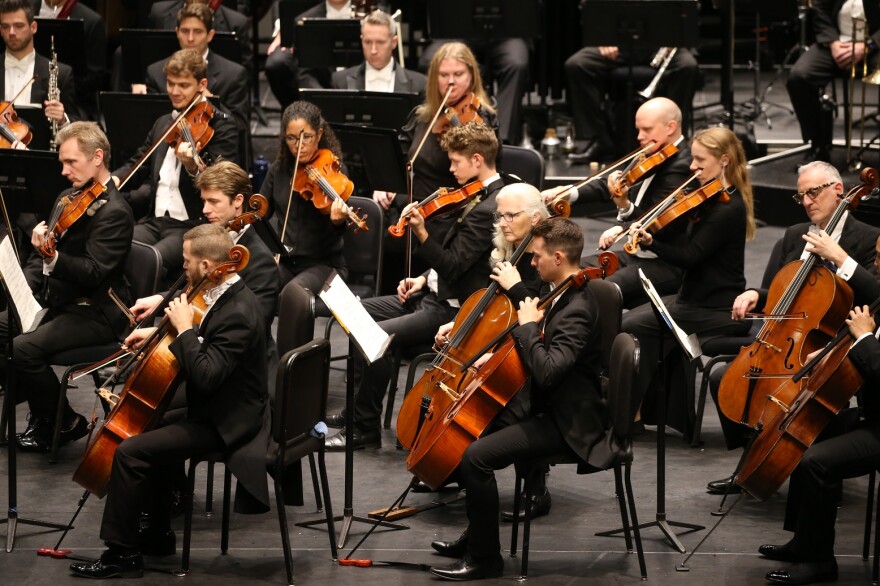The Florida Orchestra audiences will experience a work they’ve probably never heard before on the weekend of Jan. 11. Guest conductor Nicholas Hersh is excited for people to hear William Dawson’s “Negro Folk Symphony.”
Dawson wove spirituals throughout the symphony, and perhaps the most recognizable one is, “Go Down Moses.”
“Dawson was one of the most important African American composers who lived and worked out of the Harlem Renaissance period in the early 20th century. And he was, I think, the third African American, a composer, to have a symphony performed by a major symphony orchestra,” Hersh said.

Hersh said Dawson’s lone symphony has a narrative.
“Essentially, the story of how African Americans came to be in American society today that starts with being shipped in slave boats from Africa. Dawson himself says that the first theme you hear in the horn represents this idea of a missing link that was taking out of the African experience when the first African American was shipped from, from Africa to the U.S. in those days,” Hersh said.
He said it becomes a kind of journey of finding our roots, and reconciling them and looking to the future.
Hersh said a friend who works as a consultant with The Florida Orchestra reached out to him a few years ago to help with the sheet music for Dawson’s symphony.
“He says, ‘Nick, we're planning on doing this piece by William Dawson, “The Negro Folk Symphony” in a concert coming up, But we just got to look at the sheet music for it, the parts, and they're in really awful shape.’ And that means, it was really impossible for the players to read the notes on their page because the manuscript was, was very messy. There are lots of errors, there are a lot of inconsistencies,” Hersh said.
This was likely, Hersh said, because Dawson didn't have the support from a publisher.
Hersh worked with musicologist Gwynne Brown on the score.
“She was asked by the publisher to do what's called a performing edition, a more complete and authorized edition that she was working on. She was going through and doing a lot of the same work that I was doing, and then we put our heads together, and she asked me a lot of questions about the work I did, and we sort of fed back a little bit. And so she, I'm in the acknowledgements now of ... that new edition because, of the work we did together,” Hersh said.
Hersh said he thinks audiences will have a positive response to Dawson’s work.
“I'm sure that they'll be blown away by the emotional content and the musical content,” he said.
And he hopes one day to record the symphony that he now knows so well.
You can hear him conduct the The Florida Orchestra in Masterworks concerts this Saturday and Sunday at the Mahaffey Theater in St. Petersburg. The program includes Mendelssohn’s famed Violin Concerto in E minor, with soloist Geneva Lewis making her debut with the orchestra.





